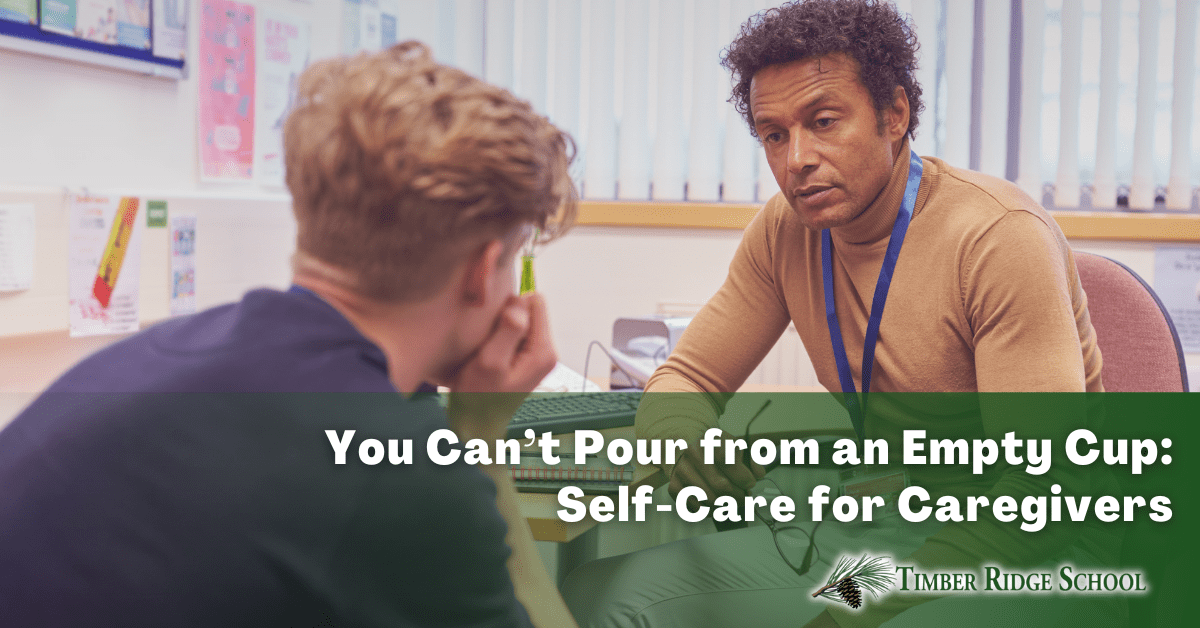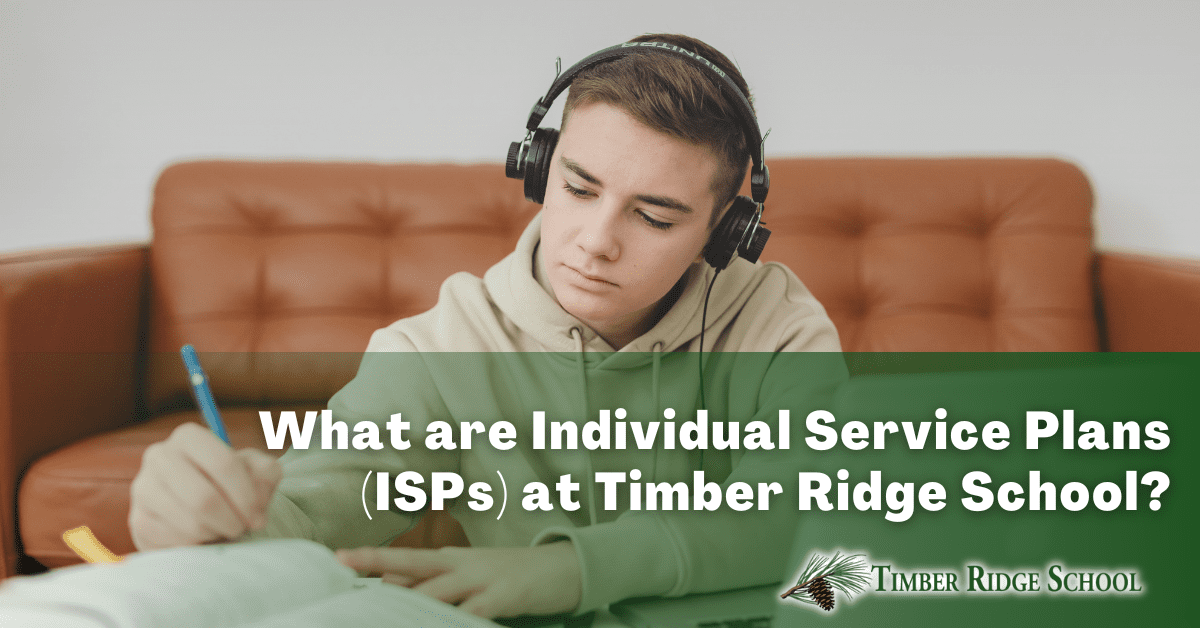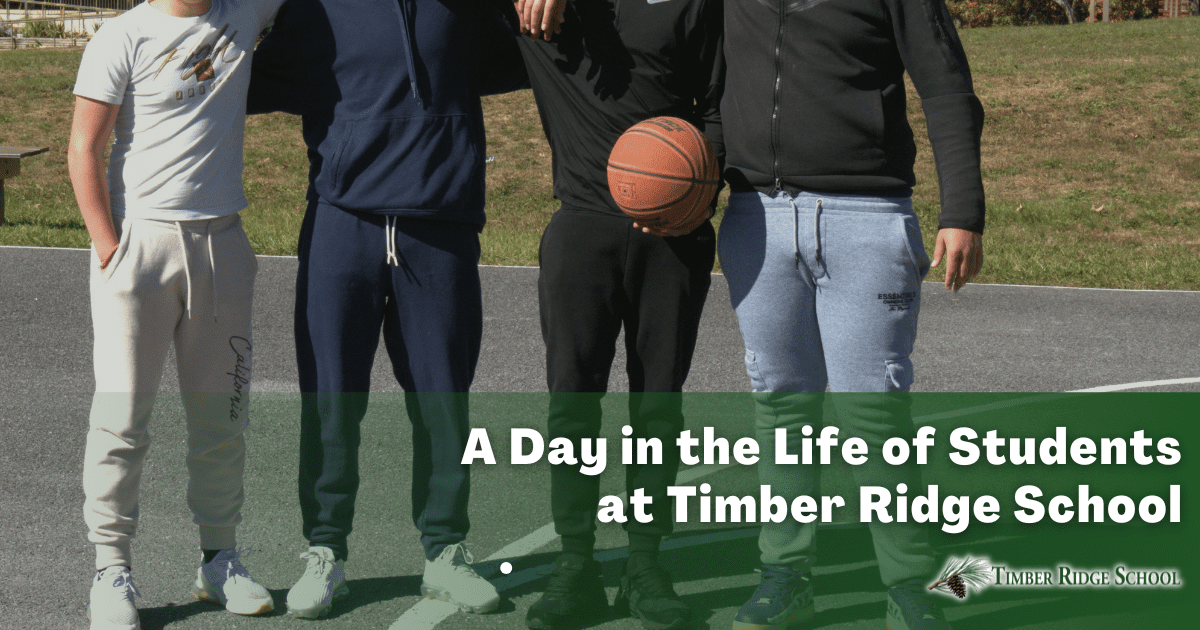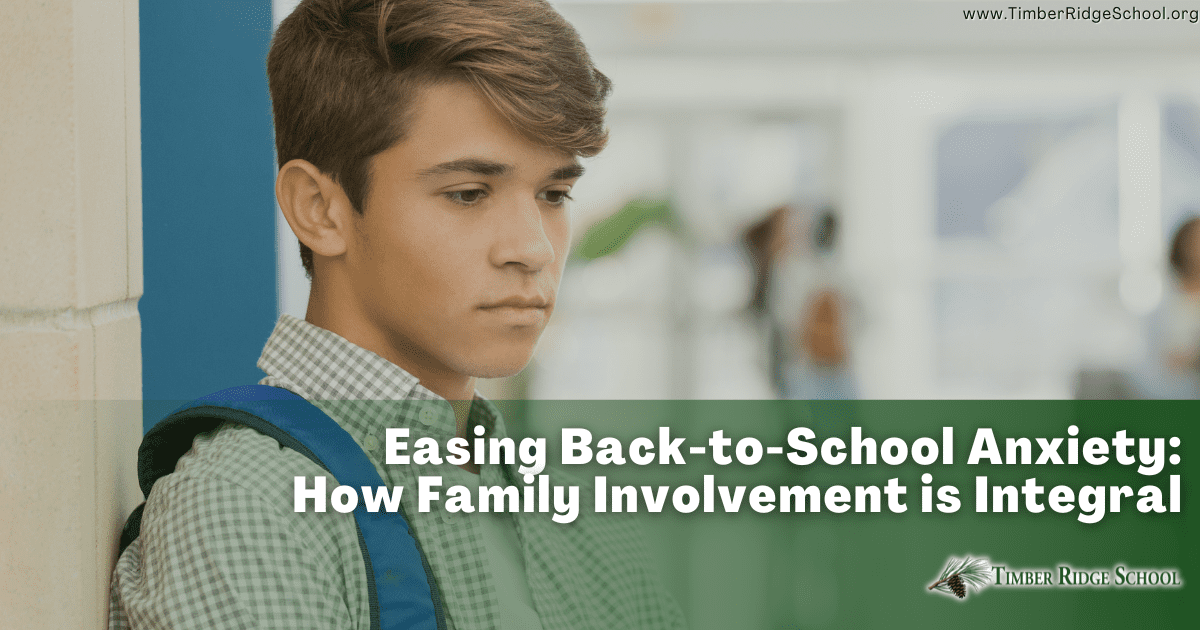Nestled in the heart of Frederick County, Virginia, there is a smattering of rustic wooden buildings set against sprawling fields. The cacophony of boys’ voices can be heard in the distance, on their way to a counseling session, where they will review their progress individually with a licensed counselor.
This is Timber Ridge School, a residential treatment center for serving adolescent boys with mental health, behavioral, and/or substance abuse issues, and at the heart of our mission to empower these boys exists one term: Individual Service Plan (ISP).
At Timber Ridge School, ISP is developed with specific objectives initiated on the basis of specific needs demonstrated by students and families. Here are a few examples of the types of services that TRS provides students as a part of their ISP:
1. Developmental-behavioral support program
This program provides a structured environment where students receive individualized support in order to develop essential life skills, self-regulation techniques, and positive behavioral patterns.
2. Trauma-informed care
Traditionally, residential care has been characterized as a points-and-level system. However, Timber Ridge is making an intentional shift toward a fully trauma-informed approach.
As CEO Derek Unger explains, “One of the goals for a trauma-informed approach is to support kids, adolescents and their caregivers through active engagement in the world, through empowering and a positive future versus living in survival mode.”
This program helps recognize triggers and fosters the youth’s awareness and skill in identifying, understanding, tolerating, and managing their internal experience.
3. Family engagement to build healthy, supportive relationships and improve family function
One of the first priorities Timber Ridge implements is to establish a connection with the child’s home community. We believe family engagement begins before a child steps foot on campus. Interviews are held with family members during the pre-placement assessment and we even invite families to come and tour the facility.
Weekly family sessions are also put in place to help facilitate open communication. Unger says, “One of the good things that came out of the pandemic was Zoom. So if parents live far away, then at a minimum they are going to get a weekly Zoom family session. We want to get them back into their home and get them back into their community.”
4. Clinical services providing individual and group counseling and if appropriate, substance abuse groups
Counseling sessions are implemented based on the individual needs of the student. For students requiring additional support, specialized substance abuse groups are also available. These targeted interventions help them overcome addiction and develop strategies for long-term recovery.
Learn more about this program here.
5. Educational services in a supportive, structured setting
Our educational services provide a supportive, structured setting designed to help students thrive academically.
Serving grades six through twelve, all of our teachers are licensed and often have dual endorsements in special education and their core field. We take pride in our rigorous program, which boasts a 94% graduation rate. Our year-round, block schedule allows students to earn eight credits annually, compared to the typical seven, with additional opportunities over the summer.
We tailor education to each student’s individual needs, helping them stay on track to graduate, whether through traditional coursework or our federally mandated GED program.
With personalized support, tutoring services, and access to learning resources, we help students reach their academic potential and move forward with confidence. In addition to academics, we also have a well-established athletics program that allows students to participate in interscholastic athletics such as football, soccer, wrestling, basketball, track, and cross country.
Learn more about our Academic Day School here.
6. Medication management
In some cases, medication management is a necessary part of a student’s program and well-being.
Our professionals work closely with families and healthcare providers to ensure medications are safely administered, monitored, and adjusted as needed. Registered and licensed practical nurses are on campus or on-call, providing 24/7 support to our students. Our Health Services department maintains records, administers medication, assesses medical needs, and schedules necessary medical and dental appointments.
Our nurses arrange a psychiatrist for a student’s medication management. The psychiatrist provides an initial evaluation for psychotropic medications, makes provisions for prescriptions, and monitors ongoing medication use.
7. Transitional services for continued success post-discharge
The My Next Step transitional living program at Timber Ridge School is designed for youth who may be wards of the state or lack a clear discharge destination.
This program helps students build independence and prepare for adulthood by engaging them with the community through part-time jobs or college enrollment. Students learn essential life skills such as budgeting, opening checking accounts, and obtaining driver’s licenses.
For high school graduates, the program also offers access to the Career Tech and Education Trades Academy, providing hands-on training and job placement assistance to ensure a smooth transition into the workforce or further education.
8. Aftercare recommendations.
When it comes time for a student to leave, we take great care in curating a personalized aftercare plan to support their long-term success.
By working with their family and community, as well as setting them up with resources, our goal is to ensure they continue to build on the progress they achieved during their time in our program.
Learn more about our Transitional Living Services program here.
Providing a Supportive Environment is the Key to Success
At Timber Ridge, we are dedicated to providing a comprehensive and supportive environment that promotes both academic and personal growth. From our trauma-informed approach and specialized services to our individualized educational programs and aftercare support, we focus on equipping each student with the skills, resources, and confidence they need to succeed in the next phase of their lives. Learn more about our admissions process here.










